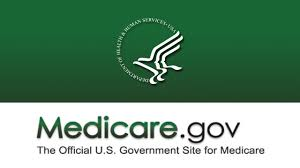WASHINGTON, DC – January 1, 2023 – Medicare provides health insurance for older Americans, disabled people and persons with certain chronic diseases. If you are eligible for Medicare, then you must decide between government-run traditional Medicare or a Medicare Advantage (MA) plan managed by private-health insurance companies. Traditional Medicare consists of Part A (for in-hospital care), Part B (for outpatient care including doctor visits) and Part D (for prescription drugs). Medicare Part C, also known as MA, usually covers Part A, B & D. Almost one-half of all Medicare enrollees have Part C this year.
Many traditional Medicare beneficiaries may be unaware that they are receiving services from a provider using direct contracting, similar to MA, unless the provider notifies them. In 2019, during the Trump administration, the Centers for Medicare & Medicaid Services (CMS) entered in a direct contracting (DC) model with clinics, health systems, health plans and commercial health insurance. They are paid by the federal Medicare program to cover each beneficiary’s care like in the MA program. However, the DC only includes Part B like traditional Medicare and does not include Part D or other benefits offered by a MA plan. With the start of the New Year, under the Biden administration, CMS has modified the original DC model with the Accountable Care Organization Realizing Equity, Access, and Community Health (ACO REACH) model to provide stricter oversight and a stronger focus on health equity.
Traditional Medicare beneficiaries in ACO REACH may be subject to the same disadvantages of MA. The MA plans restrict networks of doctors and hospitals, mandate authorization for some services (like imaging studies) and require referrals to specialists. The Office of the Inspector General found that MA plans routinely rejected claims that should have been paid and denied services that physician reviewers found to be medically necessary. Persons requiring medical care while away from home may not have their health care covered because the local providers are out-of-network. Brown University researchers found that many high medical needs patients were more likely to switch from MA plans to traditional Medicare.
Senator Elizabeth Warren, Representative Pramila Jayapal, and 19 other members of Congress recently sent a letter to Chiquita Brooks-LaSure, the CMS Administrator, complaining that the ACO REACH “model provides an opportunity for health care insurers with a history of defrauding and abusing Medicare and ripping off taxpayers to further encroach on the Medicare system.” They have asked CMS to protect patients by “halting participation by any organizations that have committed health care fraud.”
Listen to the full report below:
Contact: Dr. Dick Needleman, Health reporter, 103.3 AshevilleFM, [email protected]
More Posts for Show: Asheville FM News Hour
